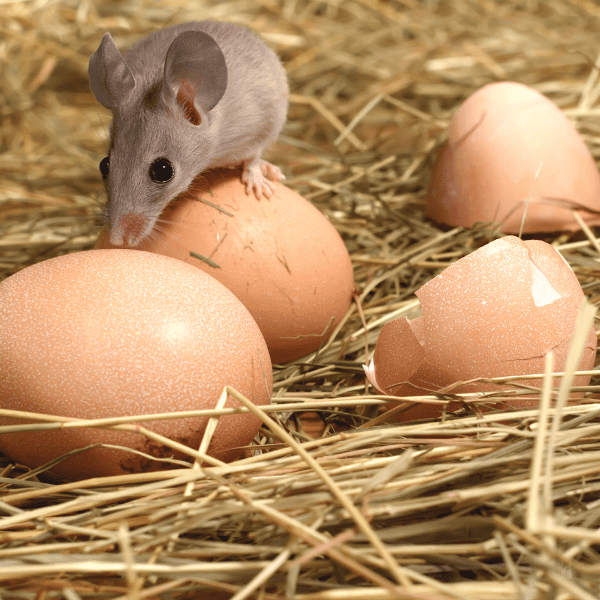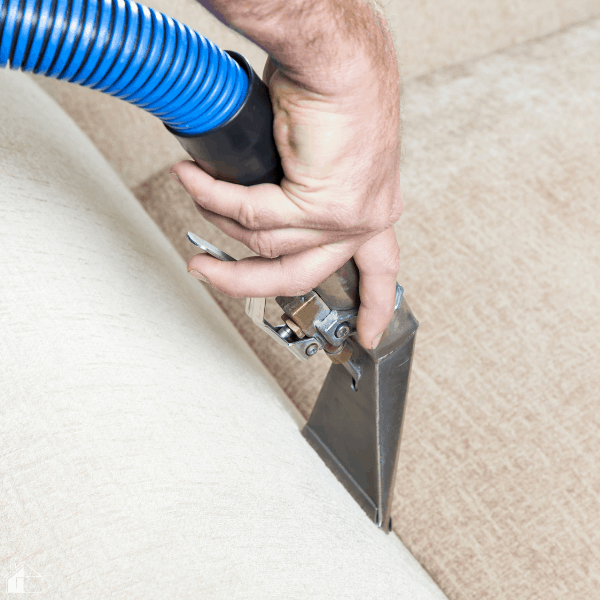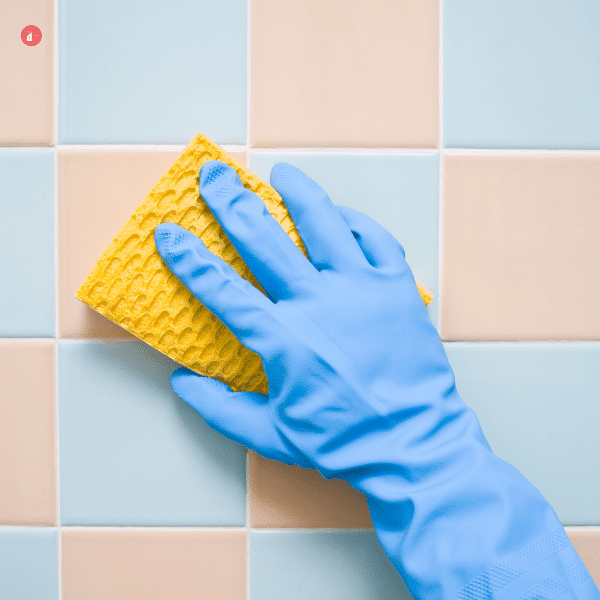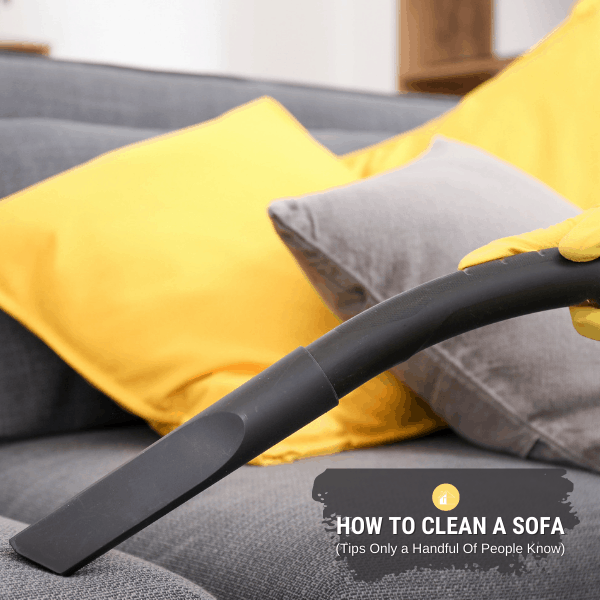Eco-Friendly Pest Control Methods for Your Backyard Chicken Coop
This post may contain affiliate links which might earn us money. Please read my Disclosure and Privacy policies hereManaging pests in your backyard chicken coop is essential for the welfare of your feathered friends. However, conventional pest control methods often involve harmful chemicals that could impact the health of your chickens and the environment.
Let’s explore sustainable approaches that prioritize eco-friendly and efficient pest control methods and their contribution to promoting a healthy habitat for your backyard chickens.
You'll learn different techniques for maintaining a pest-free coop, from prevention strategies and DIY repellents to proper coop maintenance.

Identifying Common Pests
Knowing the usual suspects that invade chicken coops is the first step in effective pest control. Here are some common pests you need to keep an eye on:
- Rodents (rats and mice). Rodents can become a problem due to the abundant food and warmth a chicken coop provides. Not only may they eat your chicken feed, but their presence can also stress chickens, reducing egg production.
- Mites, lice, and fleas. These tiny parasites can infest your chickens, causing discomfort and potentially leading to lower egg production and sickness. If you live in Oregon, know when flea season is so you can take preventive measures to protect your chickens.
- Flies. While a few flies are normal, a large number can create unhealthy conditions for your chickens. They are attracted to chicken manure and can proliferate if waste is not properly managed.
- Snakes. In many areas, snakes may go after eggs or even small chicks.
Evidence of these pests can vary from visible sightings and droppings to unusual behavior in your chickens. For example, chickens infested with mites or lice may look restless, or you might notice them pecking at their feathers more often.
Identifying these pests and their signs early allows you to be better prepared to act swiftly and keep your chicken coop free from harmful invaders.
Natural Pest Prevention Tactics
Prevention is the cornerstone of sustainable pest control for chicken coops. It saves you the hassle of dealing with an infestation and protects your chickens from distress and potential illness. Here are ways to quite literally shut the door on pests:
- Secure the coop. Fortifying the chicken coop can prevent many pests. Install tight-fitting lids on feed containers to deter rodents. Hardware cloth on vents and windows can help keep snakes and rats at bay.
- Maintain cleanliness. Regularly cleaning the chicken coop can discourage pests. Swift removal of old food, feathers, and waste is crucial.
- Practice proper waste management. Composting chicken manure in a sealed bin can prevent fly infestations.
- Regularly check for parasites. Regularly inspect your chickens for signs of parasites like mites or lice. Catching these early can prevent a full-blown infestation.
- Implement strategic landscaping. Planting deterrent plants around the chicken coop can naturally repel pests. For instance, mint can deter rodents, while marigolds are known to obstruct many insects.
- Install predator deterrents. Consider installing deterrents to ward off larger predators. These can range from motion-detecting lights for nocturnal creatures to harmless decoys for daytime ones.
Taking proactive steps to make your chicken coop less attractive to pests may require some effort initially, but keeping your chickens healthier and happier and your coop cleaner will pay off in the long run.
DIY Natural Pest Repellents
Harnessing the power of nature, you can create your own safe and effective DIY pest repellents. This can be an economical and eco-friendly alternative to commercially available products. Predominantly, you can make two types of homemade repellents: plant- and vinegar-based.
Plant-Based Repellents
For plant-based repellents, utilize plants known for their pest-repelling properties. Herbs such as rosemary, garlic, and mint can be steeped in boiling water, then cooled and strained to produce a potent spray. Simply apply this concoction around the coop and on the chickens themselves (avoiding their eyes).
Citrus peels are another useful ingredient, as they repel many insects. Just boil the peels, strain the liquid, and let it cool before use. Remember to reapply these natural sprays frequently, especially after rain.
Vinegar-Based Repellents
Vinegar-based repellents are particularly effective against ants and some other insects. Mix equal parts of white vinegar and water in a spray bottle. You can spray this mixture around the coop, but avoid directly spraying the chickens as they may not appreciate the smell.
Diatomaceous Earth
Food-grade diatomaceous earth (DE) is also a natural pest deterrent. It’s a nontoxic powder made from crushed fossilized algae, lethal to pests but harmless to chickens. Sprinkling it around the coop can help fend off mites, lice, and other creepy crawlies.
These DIY solutions affirm your commitment to sustainable pest control and allow you a level of customization, creating solutions best suited for your specific pest problems. Plus, the use of readily available, oftentimes kitchen-based ingredients gives you added convenience and cost efficiency.
Eco-Friendly Pest Control Products
If you do find yourself needing a little extra help in the battle against pests, consider eco-friendly commercial pest control products. These products are designed to control pests effectively while preserving the environment and causing minimal harm to non-targeted creatures.
Eco-Friendly Pest Control Products
When choosing a pest control product, look for those that are certified organic. These products avoid synthetic chemicals, opting instead for natural ingredients that don’t contribute harmful residue to the environment or pose a risk to your chickens. Eco-friendly pesticidal soaps, oils, sprays, or trap-based products can be handy tools in your pest control arsenal.
Beneficial Insects
Predator insects can also be a beneficial addition. Introducing predator insects like ladybugs and beneficial nematodes can help to naturally control pest populations. These beneficial insects prey on pests and their larvae, helping to keep numbers down without harmful chemicals.
Poultry Dust
One widely used commercial product is poultry dust. Formulated with plants that naturally repel bugs, this can be dusted on the chicken coop and on the birds themselves. Yet, make sure to purchase products with non-toxic ingredients.
Remember, even eco-friendly solutions need to be used responsibly. Always read and follow the manufacturer’s instructions to ensure you’re using these products properly.
Maintaining a Pest-Free Environment
Learning to maintain a pest-free environment is key to sustainable pest control. Pests are attracted to food, water, and shelter. By managing these elements, you can make your chicken coop less inviting to pests.
Make cleanliness a top priority. Regularly clean the coop, refresh bedding, and remove uneaten feed which attracts pests. Consider using removable roosting bars and bottom trays in the coop for easy weekly clean-outs.
Proper coop design can also be a deterrent. Elevate your coop from the ground to deter rodents. Use tight-fitting lids on feed containers and remove any standing water that could attract insects. Moreover, you should seal any crevices or holes in the coop — these can serve as hospitable homes for pests.
Use chicken-friendly plants strategically around your coop. Many plants naturally deter pests and also offer shade, windbreak, and aesthetics. Garlic, lavender, mint, and marigold are all examples of pest-repelling plants.
Vigilance is essential in maintaining a pest-free environment. Frequent checks will help you identify and address budding pest issues before they become larger problems. Your efforts will pay off in a healthier, happier flock and a more sustainable backyard coop.
Healthy Chickens for Natural Pest Control
Keeping your flock strong and healthy is a powerful tool in natural pest control. Healthy chickens are more capable of fending off a pest attack, and certain normal activities performed by chickens, like dust bathing, can naturally help in controlling pests.
Firstly, ensure you are starting with healthy chicks. When purchasing chicks, choose a reputable hatchery or local farmer. Look for active chicks with bright eyes and clean vents, and avoid any that are isolated or seem lethargic.
To boost chicken health, provide them with a balanced diet, ample clean water, appropriate shelter, and plenty of opportunities for exercise. This includes access to an outdoor space where chickens can forage, which also promotes healthy behavior and reduces stress. Doing these routinely keeps your chickens in top shape, allowing them to naturally resist and manage pests effectively.
Prosperous chickens will also be less likely to attract pests in the first place. Pests such as mites and lice are often more of an issue in coops housing stressed or unhealthy birds. As such, when you prioritize the health of your flock, you also prioritize a pest-free environment.

Parting Thoughts
Practicing sustainable pest control in your backyard chicken coop requires consideration, planning, and diligence. Focusing on prevention, using natural or eco-friendly deterrents, maintaining a clean cooperative environment, and keeping your flock healthy can effectively manage pesky invaders while minimizing environmental harm. Your efforts lead to healthier, happier chickens and a more balanced, sustainable backyard ecosystem.
Keep in mind that each season may bring different pests, so periodic examination and varying your strategies may be necessary for ultimate success. You’ve learned that sustainable pest control is possible and profoundly beneficial, and with the right information and tools, you’re well on your way to mastering it.







